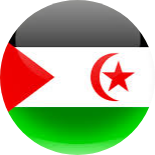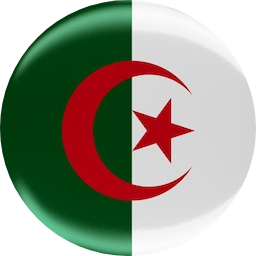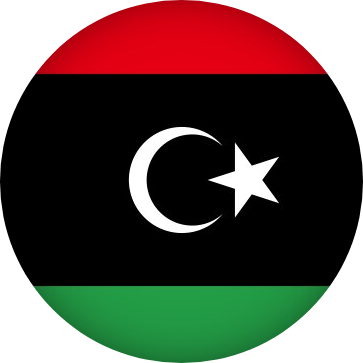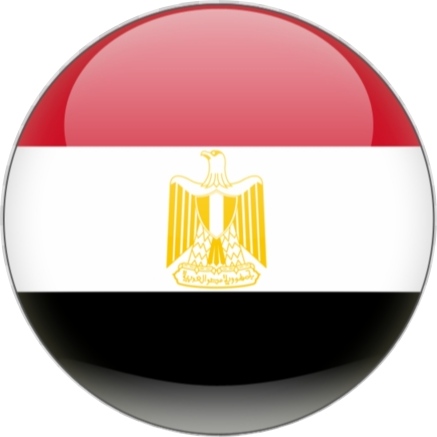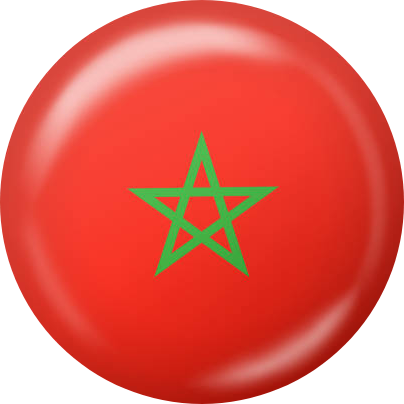
54 Women 54 Nations; North Africa
Throughout history, women from North Africa have demonstrated significant influence in leadership, activism, science, and the arts. From ancient queens and medieval scholars to modern-day politicians and activists, these women have shaped the region’s cultural and political landscape.
North African Countries
Tunisian women embody resilience, intellect, and courage, standing as pillars of progress across history and modern society. From ancient times, women in Carthage played influential roles in trade and governance, laying foundations of leadership. In modern Tunisia, they have been at the forefront of education, politics, and social reform. The legacy of icons like Tawhida Ben Cheikh, the first female physician in the Arab world, symbolizes their determination to break barriers and pioneer new paths. Tunisian women were also central to the Jasmine Revolution, raising their voices for freedom and justice, shaping the nation’s democratic journey. Today, they excel as entrepreneurs, educators, scientists, and artists, redefining what it means to lead with strength and vision. Their exploits are not just national achievements but also global contributions, proving that Tunisian women are powerful agents of change, courage, and hope for future generations.
Women of Western Sahara are symbols of endurance, courage, and leadership in the face of adversity. Living through decades of struggle and displacement, they have carried the weight of their communities with unshakable resilience. In refugee camps, Sahrawi women built schools, organized healthcare, and led local governance, ensuring hope and dignity thrived even in harsh conditions. Their leadership extends to political advocacy, where they stand boldly on international platforms demanding justice and self-determination. At the same time, they safeguard Sahrawi culture, passing on traditions, songs, and stories that preserve identity through generations. Their exploits prove that strength is not just found in power, but in the ability to nurture, protect, and lead under the most challenging circumstances. Sahrawi women embody a spirit of defiance and hope, serving as beacons of courage for their people and the wider world.
Moroccan women shine as architects of tradition and pioneers of progress, weaving strength through every layer of society. From the wisdom of ancient storytellers and artisans in Marrakesh souks to trailblazers like Fatima al-Fihri, founder of the world’s oldest university, their legacy is profound. Moroccan women have balanced cultural preservation with modern leadership, breaking barriers in law, business, politics, and education. They are instrumental in community building, often leading grassroots initiatives that uplift families and society at large. Today, Moroccan women stand at the crossroads of heritage and innovation—advancing technology, excelling in arts, and championing human rights. Their resilience is woven into Morocco’s story, reminding the world that progress is most powerful when guided by courage and vision. Their exploits reveal a strength that nurtures both tradition and transformation, making them timeless pillars of hope and inspiration.
Algerian women are warriors of spirit, whose courage has shaped their nation’s history. During the War of Independence, they stood on the frontlines as fighters, nurses, and messengers, their bravery immortalized in the struggle for freedom. Beyond conflict, they continue to lead as educators, innovators, and guardians of cultural heritage. Algerian women are known for their ability to balance tradition with progress, bringing strength to both family life and national development. Figures like Djamila Bouhired, a freedom fighter, symbolize defiance and courage, while countless others quietly build communities through education and social work. Today, Algerian women excel in science, law, arts, and business, expanding their influence on a global scale. Their exploits echo with resilience and determination, proving that true strength lies in sacrifice, vision, and the unwavering pursuit of justice and progress.
Libyan women embody resilience forged through generations of challenge and transformation. Historically, they nurtured families and preserved culture in times of upheaval, while also engaging in resistance and reform. During the country’s struggles for independence and beyond, women stood as voices of strength, often organizing communities and protecting traditions. In recent years, they have emerged as advocates for peace, education, and human rights, showing leadership in rebuilding society amidst uncertainty. Libyan women excel as poets, doctors, activists, and entrepreneurs, redefining their nation’s identity with courage and creativity. Their strength lies not only in endurance but in their ability to inspire hope and plant seeds of progress in shifting sands. Their exploits affirm that even in turbulent times, women are anchors of stability, vision, and renewal—symbols of the enduring power to rebuild and reimagine a brighter future.
Egyptian women carry the legacy of queens, scholars, and visionaries whose influence shaped civilizations. From the legendary Cleopatra and Hatshepsut to pioneering reformers like Huda Sha’arawi, Egyptian women have always stood at the heart of leadership and transformation. They were educators of nations, healers, and defenders of justice, inspiring awe with their wisdom and courage. In modern Egypt, women continue to break barriers in politics, science, arts, and entrepreneurship, commanding respect both at home and abroad. Their strength is visible in the streets, where they drive movements for progress, and in homes, where they nurture generations. Egyptian women embody the bridge between one of the world’s oldest civilizations and a vibrant modern society, proving that their influence is timeless. Their exploits reflect power, grace, and resilience, affirming their role as eternal pillars of strength and inspiration.
Sudanese women embody resilience, courage, and an unyielding spirit that has shaped their nation across centuries. From the ancient queens of Nubia, known as the Kandakes, who ruled with wisdom and authority, to modern-day leaders and activists, their legacy is one of strength and influence. Sudanese women have been central in education, healthcare, and cultural preservation, nurturing communities through challenges while preserving traditions of beauty, poetry, and song. In recent years, their presence on the frontlines of peaceful protests captured global attention, symbolizing the struggle for freedom and justice. Women like Alaa Salah, “the Lady Liberty of Sudan,” represent the fearless voice of a generation demanding change. Beyond activism, Sudanese women thrive as entrepreneurs, scholars, and creatives, redefining what leadership looks like in times of transition. Their exploits stand as powerful reminders that even in adversity, women remain the heartbeat of progress, resilience, and hope.
Check below the most important facts about North Africa
It is a long established fact that North Africa holds powerful, factual highlights about women, touching on history, culture, and achievements.
+0
Million People
+0M
North African Women
+0M
Women owned Businesses
+0
Women Community Projects
Build your own Digital Agency!
We provides you with user management functionality that results in faster development and revenue.

